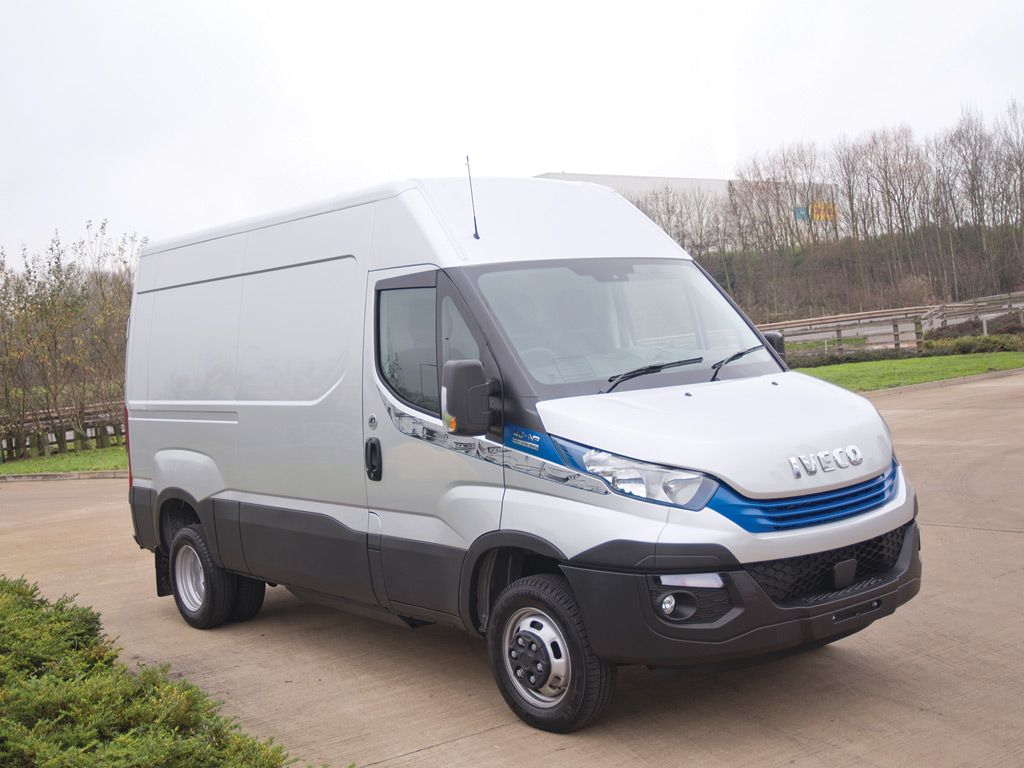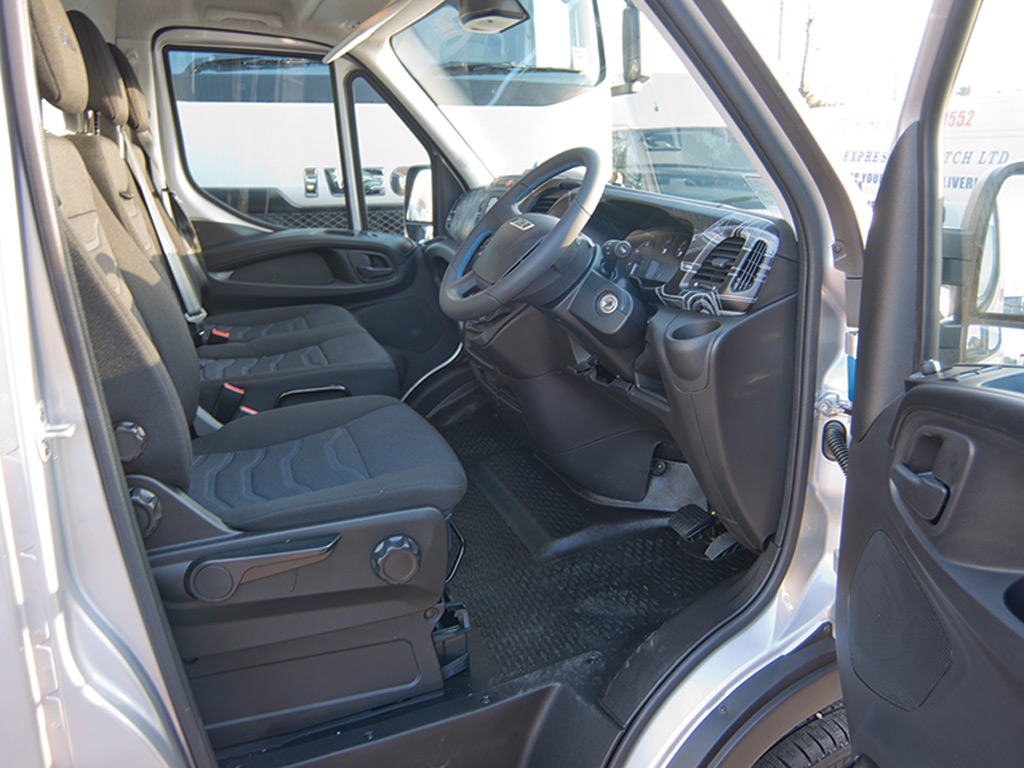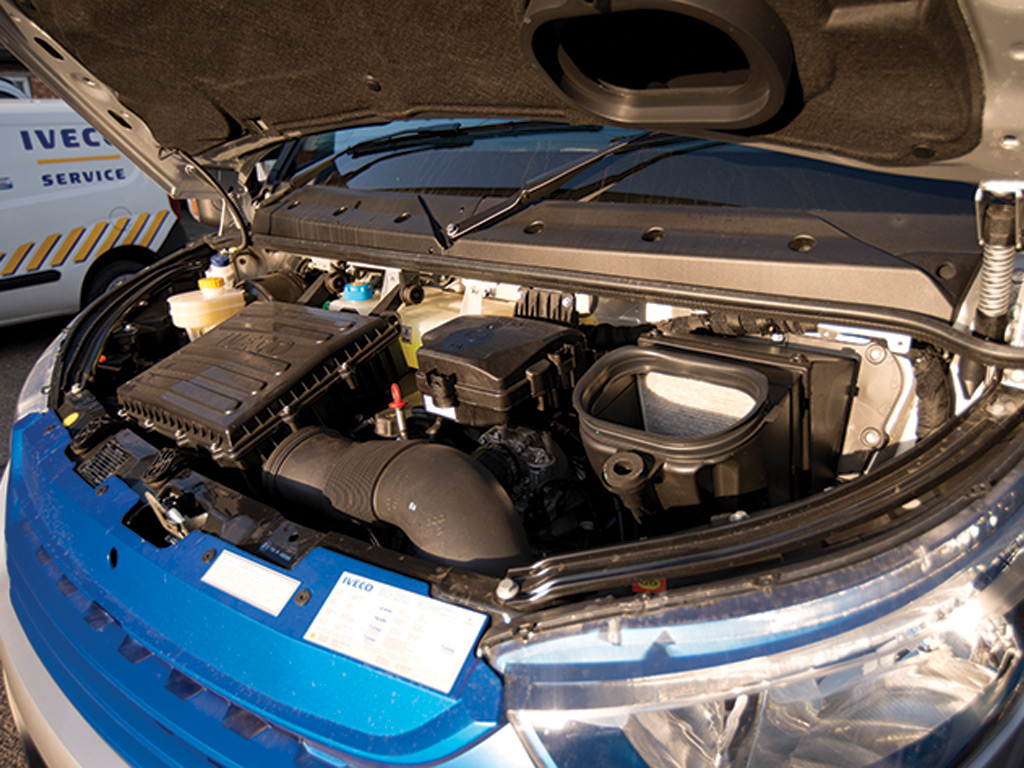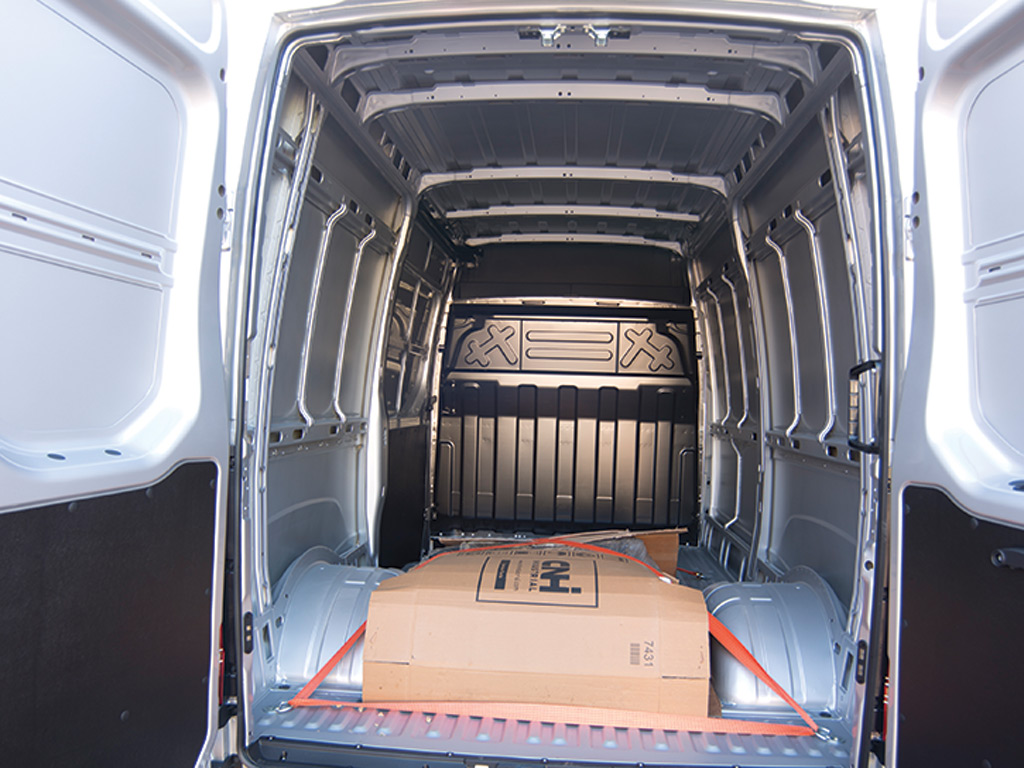Opting for natural gas provides Iveco’s Daily with additional carrying capacity, says Dan Gilkes.
As we move towards alternative power sources for vans, the news that the Government will permit car drivers to get behind the wheel of a 4.25-tonne electric LCV without requiring a truck licence was welcomed by many. It meant that the additional weight of the batteries could be offset, to allow the newcomer to compete on equal payload terms with a traditional 3.5-tonne diesel van.
What grabbed less of the headlines was the fact that this change in the rules applies to all alternatively-fuelled LCVs, including those running on compressed natural gas (CNG). For Iveco, this meant that not only did its Daily Electric become more competitive, but the Daily Natural Power gas van could also boast an improved load carrying ability.
This 4.0-tonne Daily NP is powered by the firm’s 3.0-litre CNG engine, which produces a healthy 136bhp and 350Nm of torque. It drives through the excellent eight-speed Hi-Matic automatic transmission, to the twin rear wheels.
With the van plated at 4.2-tonnes, this short wheelbase, high-roof model delivers a payload of 1,590kg, putting it well ahead of many 3.5-tonners. It also boasts a load volume of 10.8m3, though there are much longer bodies available, with capacities right up to 19.6m3.
There are several advantages to making a move to gas, along with a couple of not insignificant drawbacks. Performance is similar to diesel, though the engine is considerably quieter, by as much as 4dB. Iveco predicts fuel cost savings of up to 35% compared to diesel can be achieved too, with the government recently confirming that it will maintain the different fuel duty rates for alternative fuels until at least 2032.
The biggest benefits are to the environment however, with CNG delivering 5% lower CO2 readings than diesel. If you opt to run on sustainable biomethane, the CO2 reduction can be as high as 95% on a well-to-wheel basis. CNG engines also produce 12% less NOx and 76% lower particulate matter emissions.
The downsides of course are the infrastructure required to operate on gas. At present, public gas stations are fairly few and far between. However, fleet operators can install gas refilling stations within their own depots, with suppliers often using ongoing gas charges to forego any initial cost.
Should you run out of gas on the road, the van also has a small petrol tank, to allow the van to continue to a filling station. However, this does reduce the engine outputs to 82bhp and 230Nm, to ensure that it is only used in emergencies.
In normal driving the Daily NP is just like a very quiet diesel model. The eight-speed automatic does its job without fuss, leaving the driver free to concentrate on the road and the Daily has a comfortable cab for day-long use.
The Verdict:
If you can sort the gas supply issue, there are financial and environmental benefit to be had with a move to CNG.





